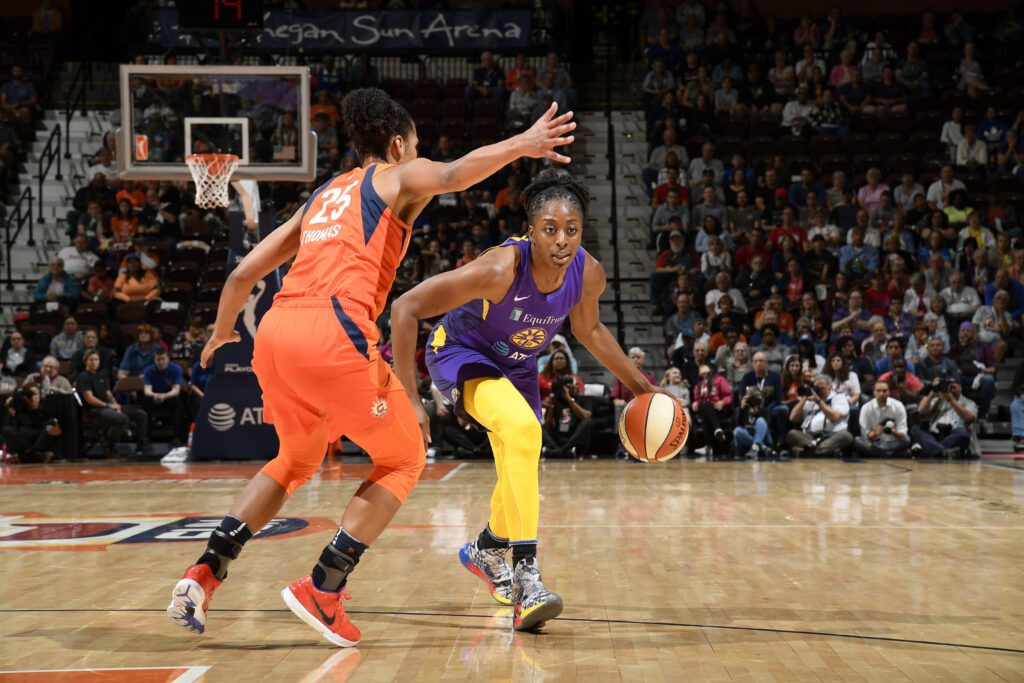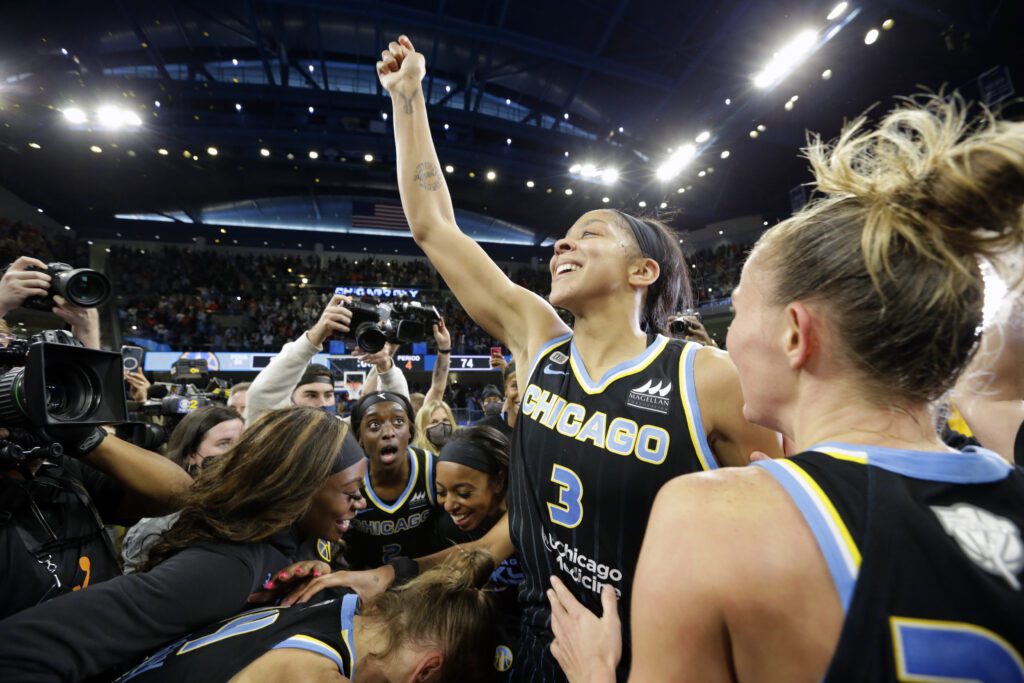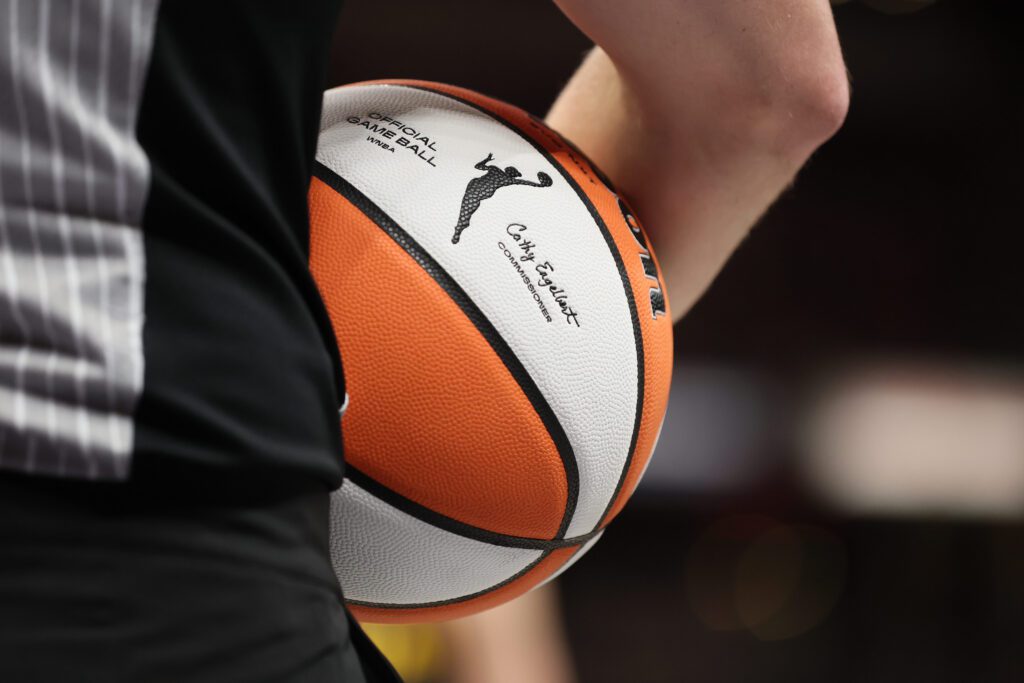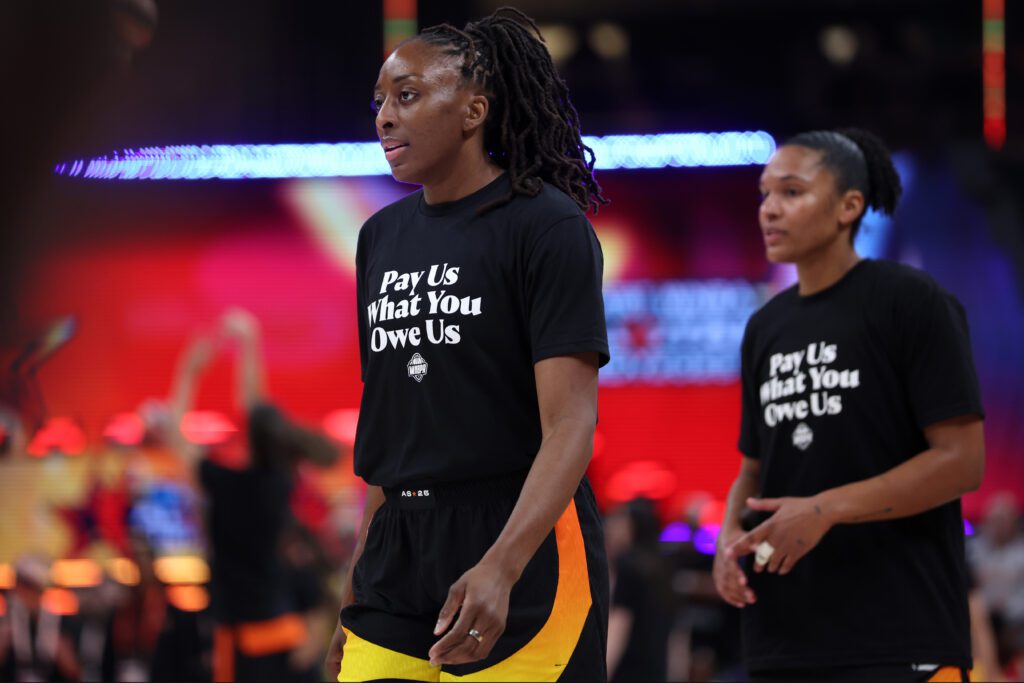Los Angeles Sparks star Nneka Ogwumike spearheaded the WNBA’s landmark collective bargaining agreement in 2020 as president of the WNBA Players Association. Two years later, she’s continuing to push for gender equity, and believes the CBA was just the beginning for the WNBA.
Speaking with Just Women’s Sports as the news broke of the WNBA’s historic $75 million capital raise, Ogwumike had the league’s future on her mind.
“I am excited that we were able to come this far from starting with a new monumental CBA and then, of course for the players, investment means that we will be provided more resources and hopefully be playing in a league that is so much better than when we entered it,” Ogwumike tells JWS. “It will be interesting to see how it directly affects the players, and I look forward to any organization that is here to support women’s sports.”
The milestone investment includes the backing of more than two dozen investors ahead of the WNBA’s 26th season. With the announcement came renewed questions about player salaries, amenities such as travel and league expansion. The WNBA currently has 12 teams and an increasingly restrictive 144 roster spots.
Ogwumike says that her ideal timeline for WNBA expansion was “yesterday.”
“I think that it needs to happen, and we need to ensure that the teams that are here are here to stay. We can’t continue to see teams bounce around, we can’t continue to have dispersal drafts,” she says. “It’s important for us to reimagine the business in a way that is for sustainability and that is for longevity and for growth.”
The 31-year-old adds that she is energized by the “fervor around the conversation,” which speaks to “a league that is growing and finding its footing finally in a way that is very hopeful for everyone.”

It’s difficult to imagine the WNBA would be in the promising place it is today without the 2020 CBA, which Ogwumike helped negotiate for years in her role with the WNBPA. The agreement raised the maximum salary to $215,000 per year, with players eligible to make up to $500,000 annually between league marketing agreements, additional incentives and mid-season tournament cash prizes. Fully paid maternity leave, a childcare stipend and housing assistance were also included in the league’s overhaul.
“The journey was way more rewarding than anything else because I really got to get to know the players. I got to understand the intricacies of the business, especially as we look to sustain a business model,” Ogwumike says of the negotiating process. “I also learned so much about how much of a say athletes and players do have. It seemingly isn’t so at times when things don’t necessarily go your way.”
Ogwumike, a 10-year WNBA veteran and the 2016 league MVP, admits the CBA ratification exposed her to various experiences and viewpoints she hadn’t previously considered. That helped develop “a robust representation in our executive committee and our Players Association,” Ogwumike says, “because we’ve empowered each other to express how we feel, to make space for people and their own experience and contribute that to the greater good.”
Her efforts not only altered the fabric of the WNBA, but also provided a blueprint for other women’s professional leagues. The NWSL, after many months of tense negotiations, ratified the league’s first-ever CBA on Jan. 31 in an agreement with the NWSL Players Association.
The Sparks forward says that she had conversations with NWSL players during the WNBA’s talks, offering them guidance on the negotiating process and what to look out for when executing a CBA of their own.
“I realized … having players from other leagues contact us and ask our opinion and our advisement is exactly what we’re doing it for,” Ogwumike says. “If we hadn’t fought and signed our CBA, there wouldn’t even be any framework for other leagues to figure out how they can do it themselves.
“We are all women looking to live in a world where we can work in equity, and we can have careers where resources and our value are a priority.”
On top of inspiring other women in sport, the WNBA’s CBA also emboldened women across industries. While Ogwumike wasn’t aware of its widespread impact at the time, she says the WNBPA was intentional with “[moving] the starting line” for those who come next.
“What really surprised me was that there were women in what you would describe as conventional careers — not necessarily in sport and entertainment — that sought things that we had implemented in our CBA,” she says. “That was a pleasant surprise for me, and I was really happy that we were able to represent those who may not have had the opportunity so far to do it for themselves.”

Ogwumike’s intersectional approach to pay and resource equity translates into her participation in the Impossible is Nothing campaign with adidas, which seeks to empower and support women in sport by spotlighting athletes, launching new innovations and sustaining grassroots programs.
“Impossible is Nothing is all about being a brand that is an ally for established women and upcoming women and non-binary athletes and people who are kind of paving their own path in possibilities in sport,” Ogwumike says. “I certainly wanted to be a part of it because there is so much that is changing for us as women in sport that just has to be out there … I might be someone they are seeing that they haven’t seen before doing what I do.”
What the Ogwumike really appreciates about her partnership with the brand, and what she says adidas is better at than anyone else, is the intersection of basketball, sport, culture, music and fashion.
Impossible is Nothing’s holistic approach has exposed Ogwumike to athletes and creators she says she wouldn’t have normally encountered. In January, for example, she sat on a panel with Arsenal striker Vivianne Miedema, UK-based model Ellie Goldstein and basketball player and activist Asma Elbadawi.
“I think we are so focused on learning and respecting each other’s difference, but we are the same in so many ways. That’s something that contributes to forward movement, and that’s definitely something we have realized in the WNBA,” Ogwumike says. “Our differences are what make us the league and the W, but our similarities are what pushes us forward in that and the celebration of us having common ground.”
When it comes to that fight, pay equity is at the center of the conversation. While the 2020 CBA has certainly improved the WNBA’s playing conditions, compensation remains an issue. For Ogwumike, the solution is straightforward: pay women more.
“I think it’s interesting when pay equity people start acting like its rocket science when it exists just not mostly for women,” she says. “So there’s nothing different that needs to happen. You just need to do it for a different type of people.”
Clare Brennan is an associate editor at Just Women’s Sports.




